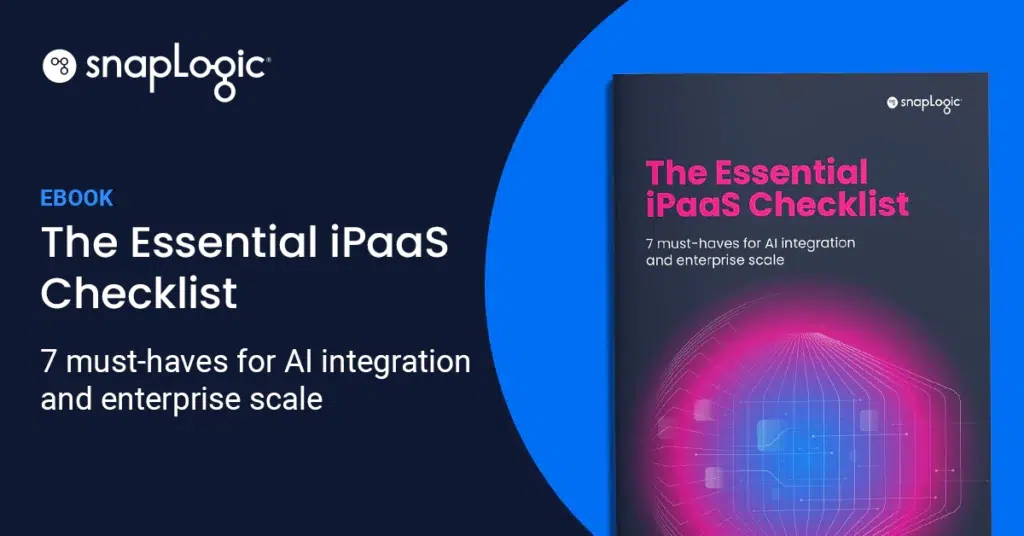What is API integration software?
An API (Application Programming Interface) is a set of programming tools used by developers to integrate functionality offered by third parties. Using an API will let developers build software more quickly, with a richer set of features and less need for ongoing maintenance. Most APIs are available via the cloud, further reducing the effort and cost of software development and seamlessly connecting data, applications, and machines. In other words, the API gives a foundational set of tools that streamline the development of software, ensure data and application connectivity across an organization, and extend the connectivity with partners and customers.
SnapLogic API Management
Creating and integrating applications in a unified platform with iPaaS and API management capabilities, like SnapLogic’s, lets people create, publish, and utilize APIs at any time without manual coding. As a cloud-based platform, SnapLogic API Management can intelligently publish and manage APIs via an API gateway accessible by authorized API consumers through advanced API access control and security capabilities. Documentation and resources for ready-to-use APIs are made available in a highly customizable developer portal. These APIs can be monitored and analyzed via advanced API analytics capabilities.
Compatibility with other API management software
SnapLogic is compatible with other API management solutions to achieve full lifecycle management. Through a simple integration within the SnapLogic platform, organizations maintain their APIs in their preferred API management solution, including Apigee, KONG, AWS, Partnering with Apigee, Microsoft Azure, 3Scale, CA Technologie’s Layer 7, Amazon Web Services, KONG, Axway, and more. SnapLogic manages REST API connectivity and connects complex data sources to development and analysis. Used as an API management partner, the preferred API management solution sits in line to manage and shape traffic, analytics, monitoring, and monetization of APIs and enforce related policies.








